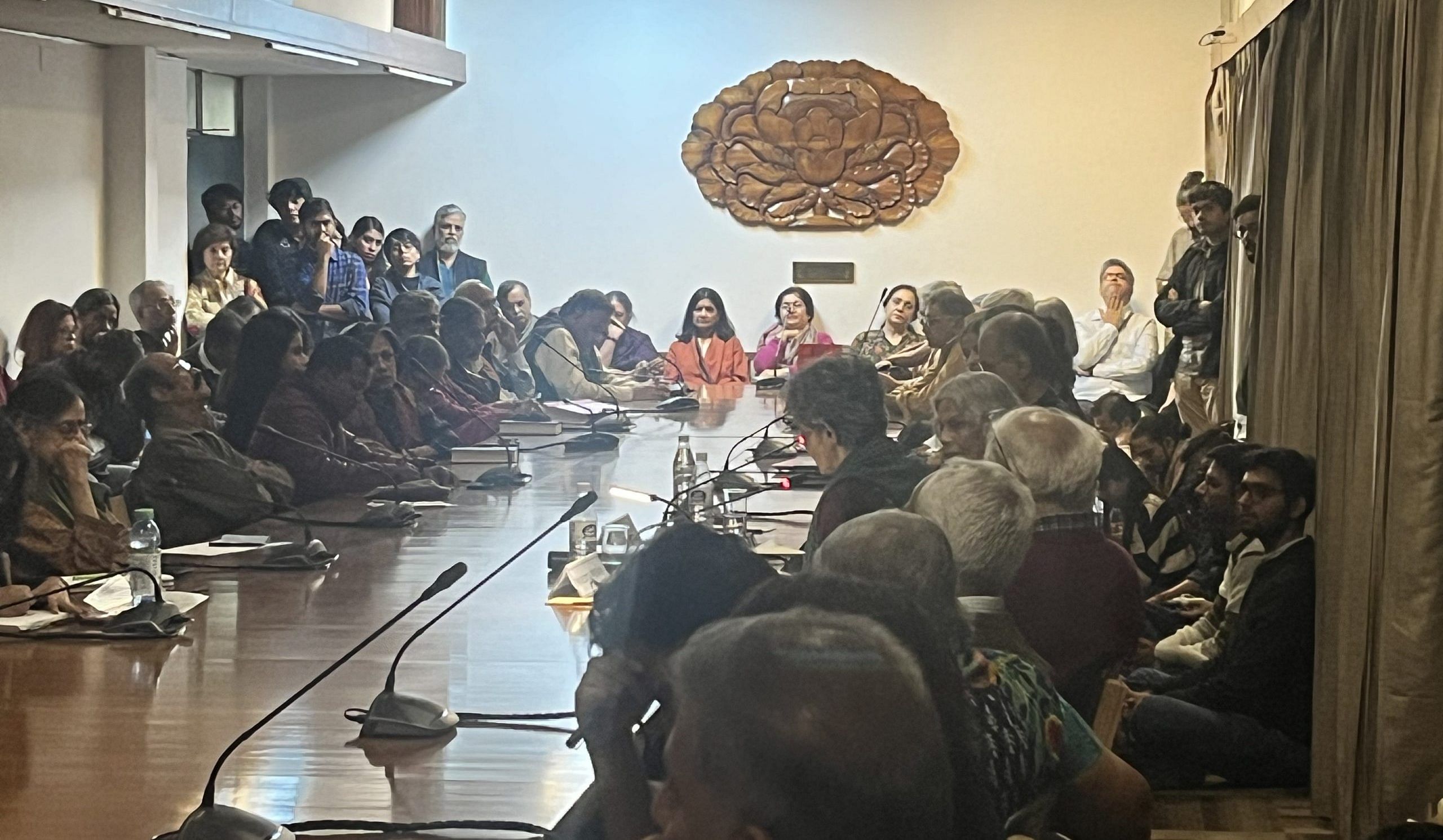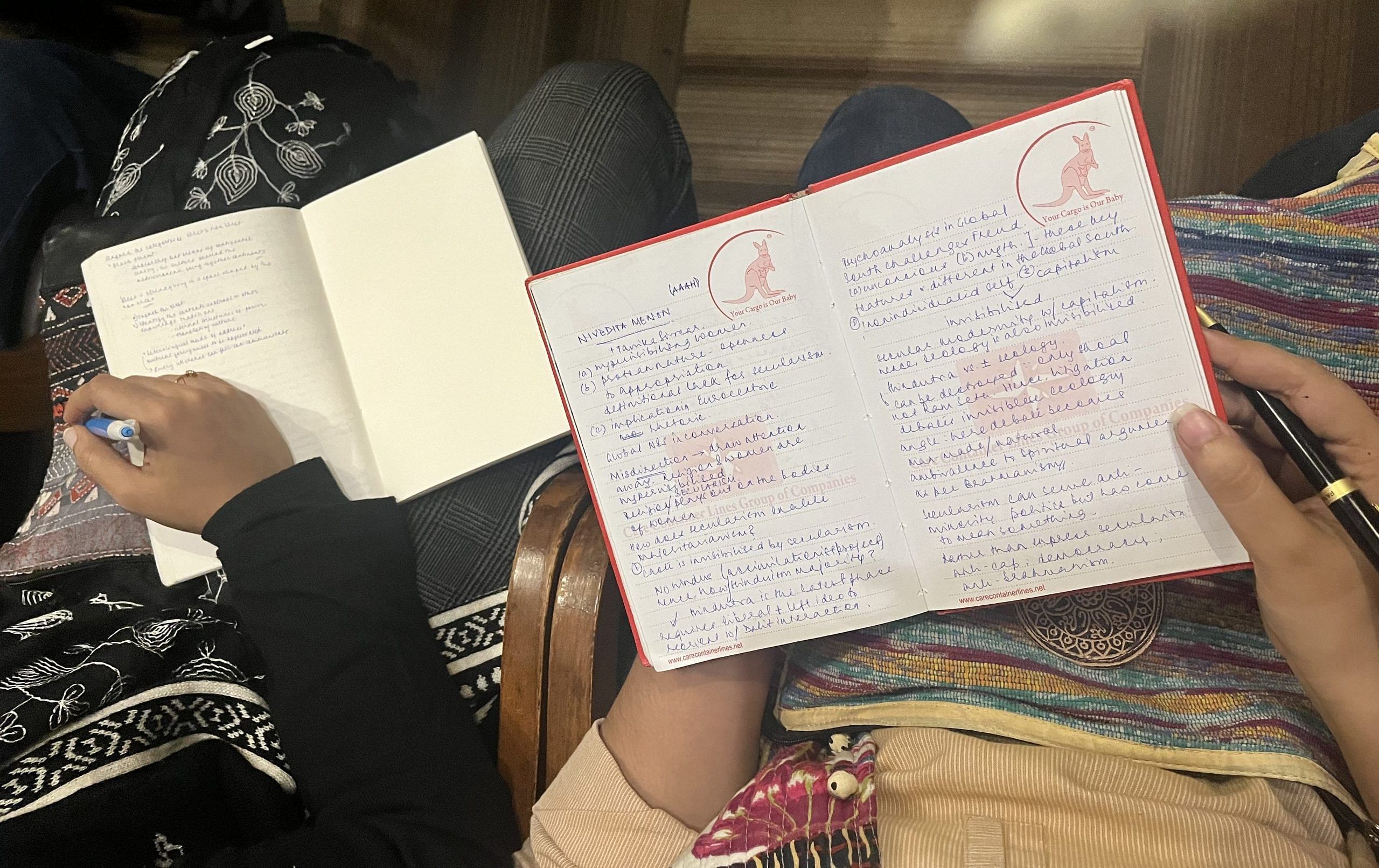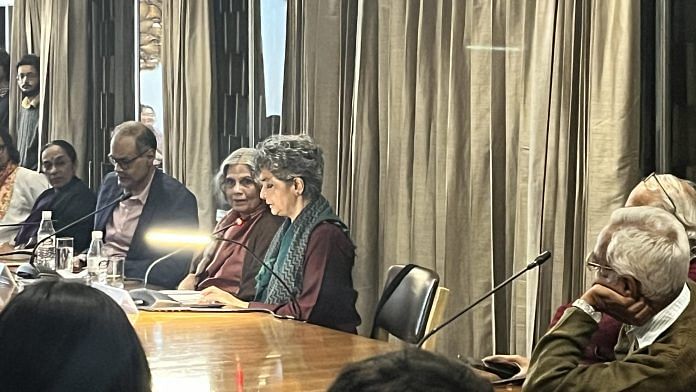New Delhi: Secularism, Global South, and Nivedita Menon—the holy trinity packed a conference room in Delhi with so many attendees that many were forced to sit on the floor and the questions just didn’t stop. After all, what India’s leading provocative activist-scholar has to say on ideology, body politic and other lightning rod issues of the day is something that the people of Delhi thrive on.
And Menon didn’t disappoint. The very title of her work, ‘secularism as misdirection’, was curiosity-inducing and counter-intuitive. From Nehru to hijab, anti-CAA protests to dams, and Sabarimalai to Ram setu—the JNU professor tackled all.
A talk on her latest book, Secularism as Misdirection: Critical Thought from the Global South (published by Permanent Black) drew nearly a hundred fellow professors, academics, and students from various universities to Delhi’s India International Centre last Friday.
“I have to admit that I have packed the room somewhat,” Menon laughed. “We would not have survived the dark times that we live in—in our country and the world—if he had not built [a] community of solidarity, support, resistance, and friendship. The presence of this community is what keeps us going.”

And then she said that talking about secularism as the ‘master discourse’ is the grand deception of the times.
In the 45-minute lecture, Menon dissected the layers in which the seemingly empowering concept of secularism operates, and can render important issues—caste, individuals, and capitalism—invisible.
Where secularism fades to the background
The discourse on secularism effects a “misdirection, similar to a magic trick which involves drawing attention away from where the trick is happening to another place or object that are made to appear more fascinating”, she explained. The outspoken public intellectual said the practice of secularism and the “grid of meaning” it produces makes certain features more hyper visibilised.
Menon gave two key instances of misleading hypervisibility—religion and women. By the time the Sabarimala protests about women’s entry reached the Supreme Court, it became more a debate about religion and rationalism, she said.
“Once religion is expressed, the debate gets pronounced in a certain way,” Menon said. “Every issue where secularism comes to a crisis is (enacted) on the bodies of women.”

Menon, who is a prominent name in the field of comparative politics and political theory, said she studied how the phenomenon of secularism misdirection works in the context of the hijab ban controversy in Karnataka and France too.
“French secularism uses the same argument to deny minority community rights,” she said.
The overheated discussions on religion also obscure caste and capitalism, she added.
Turn away from Nehruvian secularism
The lecture involved critiquing secularism from all theoretical fronts—psychoanalysis, de-colonial framework, and post-colonialism among others. Students and professors were taking copious notes.
Tanika Sarkar, who teaches history at Ashoka University and chaired the talk, praised Menon, saying she “seizes the bull by the horn” and problematises secularism’s semantics and practices.
As the floor was opened for questions, Nehruvian secularism made an appearance, unsurprisingly of course. Menon was asked if the way forward for India could be with a return to Nehruvian secularism.
“There is no question of going back to anything. There is nothing to go back to,” she replied, as she began one of her longest answers of the evening.

She said that everybody forgets that there was a left-secular-feminist school of thought that had mounted a formidable critique of Nehruvian secularism. “But that has been buried in the last 10 years,” she said.
Nehruvian secularism, she said, espoused big dams and called it the new temples of India.
“That’s real hardcore, good secularism—replace religion with dams,” she said with a touch of sarcasm. “And we know what those dams did, what they did to the people whose lands they swallowed, and the capitalist development that it was. People have given up their lands so that the cities can have malls that have to be lit all the time.
“Secular discourse and Nehruvian secular discourse was perfectly comfortable with the idea that there is a Hindu majority in this country. I don’t think we should think in terms of going back to anything,” she said. “We need to continuously reframe our context so that we express the values that we are looking for.”
There is no definition of Hindus and India is not a Hindu majority country. It is a nation of overlapping minorities. We need to think of India as a collection of minorities instead, Menon added.



